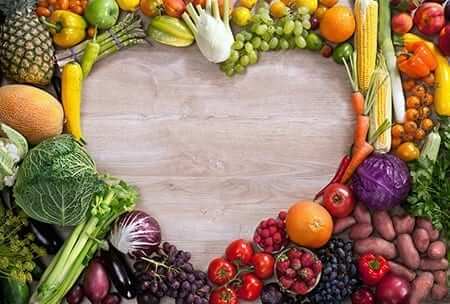Eating seasonal foods can be healthy, tasty and often less expensive. Usually people associate seasonal foods with the spring and summer. But, there are plenty of fresh winter seasonal meal ingredients to include in daily dishes when you have diabetes.
- Seasonal foods include produce, which is usually less costly and full of flavor. Consider shopping at a local farm stand in your neighborhood to make fresh foods more convenient. Think of foods seasonally and add these foods in your recipes and snack list. There is an array of winter seasonal foods to consider including in your diabetic food choices.
- Root vegetables are a seasonal winter favorite. They are hearty to reduce your hunger yet healthy to include in your daily diet. With proper storage, root vegetables will stay fresh longer than other produce. Root vegetables include carrots, turnips, celery root and winter squash.
- Brussels sprouts are harvested right through February and have plenty of antioxidants. They stay fresh in the refrigerator for up to a few weeks. Sauté Brussels sprouts in some olive oil with a sprinkling of dried garlic for a tasty side dish.
- Onions are available all year but also offer a great winter meal ingredient with vitamin C, fiber and the type of oils that can help lower “bad” LDL cholesterol. Onions can stay fresh in a dry, cool place, outside the fridge, for up to three or four months. Add onions to a scrambled egg for a hearty morning breakfast. Include onions in your soup, crock pots, stews or salads.
- Cabbage is harvested starting in July with many varieties ready for harvest in the fall and winter. Get fiber, antioxidants, vitamin C and folate from cabbage. This round vegetable may even help reduce cholesterol. Store cabbage wrapped in plastic in the refrigerator for up to a week. Add it to your stir fries or salads for some crunch or make fresh cole slaw.
- Winter squash is around through March for a healthy dose of potassium, Vitamin A and carotenoids. Store squash in a cool and humid space, such as a basement, to keep them fresh for a couple of months. Baked squash on a cold night is a special favorite.
- Carrots contain Vitamin A to help boost your immune system along with antioxidants such as Vitamin C and lutein. Studies have shown carrots may help prevent cardiovascular disease. Some varieties harvest into the winter. Store them in plastic in the refrigerator for up to three or four weeks. Put shredded carrots in your salad or munch on them with fat-free, calorie-free dip. Add carrots to soups or pasta sauces for texture and flavor.
- Sweet potatoes are low on the glycemic index and high in fiber, vitamins A and C, antioxidants and beta-carotene. Best of all, a small portion makes you feel full and satisfied. These colorful vegetables are harvested in the fall and early winter. Serve them baked or boiled. Store them outside the fridge for up to two weeks in a dry, cool space.
- For those with diabetes who live in a warm climate, there is an impressive selection of fresh winter seasonal meal ingredients. Enjoy citrus fruits, such as oranges, grapefruits and lemons, with vitamin C and flavonoids. Try pomegranate seeds, which have anti-inflammatory elements that can help ward off heart disease. Kale is a great addition to salads, offering plenty of vitamins A, C, E and K along with calcium, magnesium and iron.
When you have diabetes, the right foods help you maintain a healthy weight and blood sugar levels. Fresh winter seasonal ingredients are a budget-friendly way to add flavor and nutrients to your diet. It’s great to know you can get harvest freshness all year round!







Leave A Comment